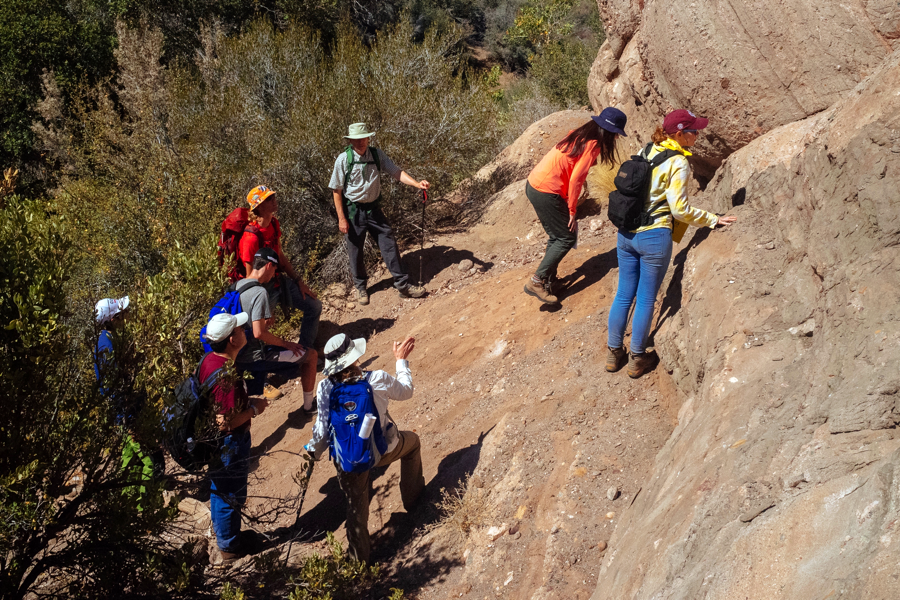All Categories
Featured
Table of Contents
What Geophysicists Do in Murdoch Aus 2023

(PREM)., and the limits between layers of the mantle are constant with phase shifts.

This makes plate tectonics possible. Schematic of Earth's magnetosphere. The solar wind circulations from delegated right. If a planet's electromagnetic field is strong enough, its interaction with the solar wind forms a magnetosphere. Early area probes drawn up the gross measurements of the Earth's magnetic field, which extends about 10 Earth radii towards the Sun.
Inside the magnetosphere, there are relatively dense areas of solar wind particles called the Van Allen radiation belts. Geophysical measurements are usually at a particular time and place. Accurate measurements of position, together with earth deformation and gravity, are the province of geodesy. While geodesy and geophysics are different fields, the 2 are so closely connected that many scientific organizations such as the American Geophysical Union, the Canadian Geophysical Union and the International Union of Geodesy and Geophysics include both.
What Is A Geophysicist? in Churchlands Australia 2023
A three-dimensional position is calculated utilizing messages from 4 or more visible satellites and described the 1980 Geodetic Recommendation System. An alternative, optical astronomy, combines astronomical coordinates and the local gravity vector to get geodetic coordinates. This approach only supplies the position in two coordinates and is harder to use than GPS.
Gravity measurements became part of geodesy because they were required to associated measurements at the surface of the Earth to the reference coordinate system.
Sea level can also be determined by satellites using radar altimetry, contributing to a more accurate geoid. In 2002, NASA released the Gravity Recovery and Environment Experiment (GRACE), wherein two twin satellites map variations in Earth's gravity field by making measurements of the distance in between the two satellites using GPS and a microwave varying system. , which are studied through geophysics and area physics.
Geophysical Survey - An Overview in Palmyra Oz 2022

Considering that geophysics is worried with the shape of the Earth, and by extension the mapping of functions around and in the planet, geophysical measurements consist of high precision GPS measurements. These measurements are processed to increase their accuracy through differential GPS processing. Once the geophysical measurements have been processed and inverted, the translated results are outlined using GIS.
Numerous geophysics companies have actually created in-house geophysics programs that pre-date Arc, GIS and Geo, Soft in order to meet the visualization requirements of a geophysical dataset. Expedition geophysics is applied geophysics that typically utilizes remote noticing platforms such as; satellites, aircraft, ships, boats, rovers, drones, borehole noticing equipment, and seismic receivers.
Aeromagnetic data (aircraft gathered magnetic data) gathered utilizing traditional fixed-wing aircraft platforms must be remedied for electromagnetic eddy currents that are produced as the aircraft moves through Earth's magnetic field. There are also corrections related to changes in measured possible field strength as the Earth rotates, as the Earth orbits the Sun, and as the moon orbits the Earth.
Geophysical Survey - Plaza Of The Columns Complex in Greenwood WA 2021
Signal processing includes the correction of time-series information for undesirable sound or mistakes presented by the measurement platform, such as aircraft vibrations in gravity information. It also includes the decrease of sources of noise, such as diurnal corrections in magnetic data., meteorology, and physics.
The magnetic compass existed in China back as far as the fourth century BC. It was not up until excellent steel needles might be forged that compasses were used for navigation at sea; before that, they could not keep their magnetism long enough to be helpful.
By looking at which of 8 toads had the ball, one might figure out the instructions of the earthquake. It was 1571 years before the very first style for a seismoscope was published in Europe, by Jean de la Hautefeuille. It was never developed. Among the publications that marked the beginning of modern-day science was William Gilbert's (1600 ), a report of a series of careful experiments in magnetism.
Job Guide - Geophysicist in Glendalough Australia 2023
Dietmar; Sdrolias, Maria; Gaina, Carmen; Roest, Walter R. (April 2008). "Age, spreading out rates, and spreading asymmetry of the world's ocean crust". Geochemistry, Geophysics, Geosystems. 9 (4 ): Q04006. Bibcode:2008 GGG ... 9. 4006M. doi:10. 1029/2007GC001743. S2CID 15960331. "Earth's Inconstant Magnetic Field". science@nasa. National Aeronautics and Area Administration. 29 December 2003. Recovered 13 November 2018.
Runcorn, S.K, (editor-in-chief), 1967, International dictionary of geophysics:. Pergamon, Oxford, 2 volumes, 1,728 pp., 730 fig Geophysics, 1970, Encyclopaedia Britannica, Vol. Intro to seismology (2nd ed.).
Table of Contents
Latest Posts
Geophysical Survey In Archaeology in Samson WA 2023
Geology Careers: Degree Requirements, Cost & Salary in Subiaco Western Australia 2022
Geophysical Surveys: Definition & Methods in Armadale Western Australia 2022
More
Latest Posts
Geophysical Survey In Archaeology in Samson WA 2023
Geology Careers: Degree Requirements, Cost & Salary in Subiaco Western Australia 2022
Geophysical Surveys: Definition & Methods in Armadale Western Australia 2022